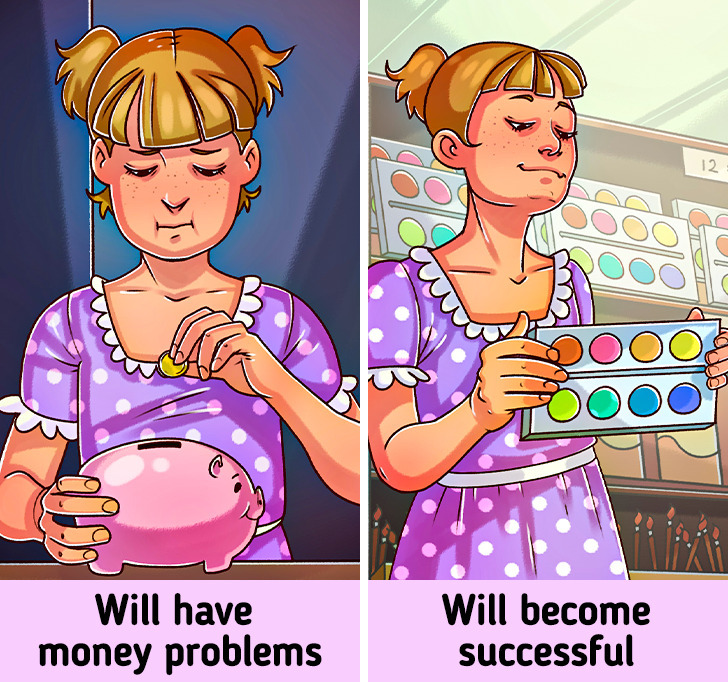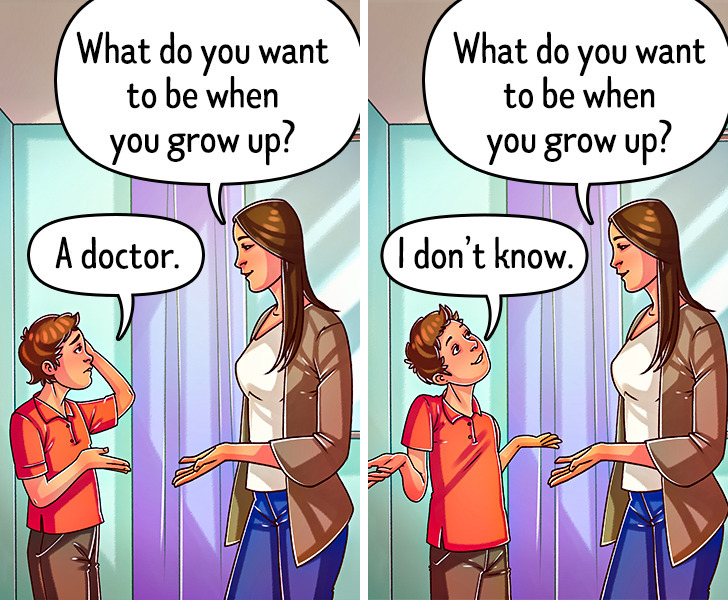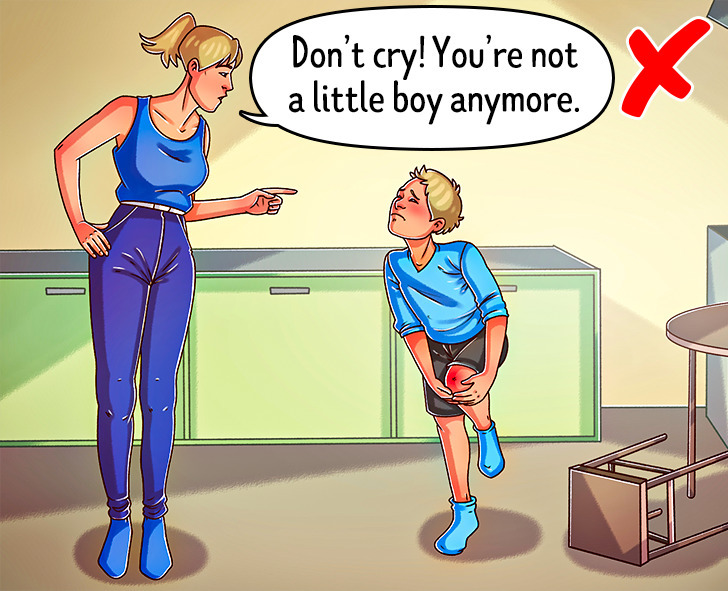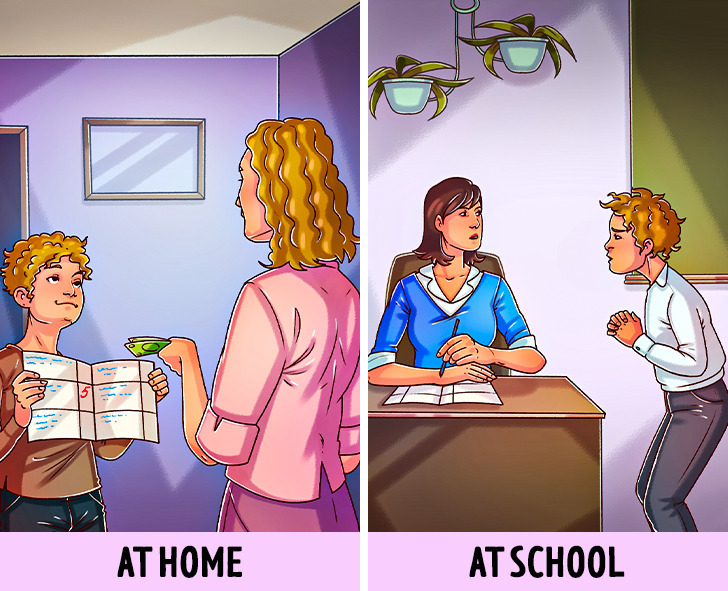14 Throwback Pics That Give Us an Honest Glimpse Into Our Beloved Stars’ Childhoods


All parents dream of having their children do well in school, stay out of trouble, and be successful when they grow up. Unfortunately, there is no magic wand that can help your child achieve this, but psychologists identified several parenting mistakes that can reduce your child’s chances of becoming successful in the future.
At Now I’ve Seen Everything, we found out, with the help of psychologists, what mistakes you should avoid to help your child to grow up into a successful person.
If your child is not involved in cleaning their room, it means someone else is doing that for them. In this case, the child doesn’t learn to be responsible and contribute to the betterment of the whole. According to psychologists, those who helped around the house from an early age grow up into more independent adults and cooperate better with colleagues.

Life doesn’t stand still, and yesterday’s ways of earning or saving money are unlikely to work today. No one knows what skills we will need to survive in the new economic environment and that is why it’s so important to teach your child to be flexible, rather than to save money.
Sometimes adults try to convince a child that their feelings are wrong. Did you get a bruise? — It doesn’t hurt at all. Are you angry with a kid who hit your head with a shovel in the sandbox? — Shame on you. Are you sad? — Cheer up. Of course, parents try to replace their children’s real feelings with more “acceptable” ones, not because of bad intentions, but for educational purposes. However, it’s important to understand that one of the main skills of a modern person is to be in harmony with their feelings, emotions, and needs.

The idea that there should be only one profession for life is doomed to failure. Some modern professions didn’t even exist 10 years ago, while others, on the contrary, have sunk into oblivion.
There is nothing bad about the fact that children sometimes see their parents sad. But it can be bad when it happens all the time. In this case, the child either tries to support you (meaning the roles in the family change), or, by seeing how “terrible” adult life is, the child is afraid to grow up. But professional achievements require a mature and confident approach.

It’s important for every child to know that in any conflict, no matter what happens, parents will be fair and won’t trust the words of a teacher, a school principal, or a neighbor immediately. Letting your child defend themselves with the condition that they will be responsible for their actions, parents help their child form adequate self-esteem and a responsible attitude.
Every generation has its heroes that people set as role models. In the past few decades, stories about the personal success of rich and powerful people have become very popular. It seems that you can just study their life path and achieve success, but for some reason, this method doesn’t work, otherwise all of the fans of this literature would have said goodbye to financial problems a long time ago. It would be better to help children identify what qualities they admire in their role models and remind your children that they don’t have to do everything that the role model does.
Perhaps one of the most important professional skills is the ability to communicate well. It’s important to teach a child to not only be friendly but to also argue properly. People’s opinions may not always be the same, but you can express your emotions in different ways. The sooner we understand this, the easier it is for us to communicate with others, including in the professional sphere.
Psychologist Angela Duckworth says that it’s really important for parents to develop perseverance in their children. It’s worth teaching them to strive for the future they want to create. Those who use phrases, like “You can’t do anything right,” or “You are useless” when talking to their children reduce their chances of becoming successful.

Now, social media is the same platform of communication as the streets once used to be. Children master various useful skills in a matter of days with the help of programs built into online communities. Of course, it’s worth setting certain safety rules, but it’s cruel to ban social media altogether.

This topic is still up for discussion. If you look at the situation from the point of view of business relations, then usually the one who is more interested pays, and the contractor provides the service for the money.
Often, parents ban things for their own convenience. For example, they don’t allow them to have a pet because it will require additional expenses, cleaning, and care. It’s easy to understand these parents: too many things to do, too many worries, too tired to bring a certain amount of chaos into your life. But it’s important to understand that a child will grow to be responsible if they get to have a pet.
They will learn to stick to the pet’s schedule of feeding, going out for a walk, and sleeping. Of course, the chores a kid can do for a pet will be delegated by the parents according to the kid’s age. Another important pro is that the kid will learn to make decisions regarding the pet, like finding a name and picking out the best type of food.
Contrary to the popular belief that playing sports teaches discipline and builds character, professional sports are dangerous not only for a child’s health, but also for their psyche. In the end, only a few become champions. At a young age, it’s not easy to cope with this injustice, and low self-esteem is formed very quickly. In addition, children who, for various reasons, quit playing their chosen sport sometimes can’t figure out what to do next in life.
Psychologists note that it’s important to teach your children to not be afraid of failures and to take defeats with dignity. If a child is punished for a mistake, they lose the desire to do anything, gain experience, or improve their skills.
What other parenting mistakes do you know of? Tell us in the comments below.











